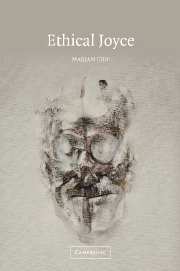Book contents
2 - Ethical knowledge and errant pedagogy
Published online by Cambridge University Press: 22 September 2009
Summary
What youthful mother, a shape upon her lap
Honey of generation had betrayed,
And that must sleep, shriek, struggle to escape
As recollection or the drug decide,
Would think her son, did she but see the shape
With sixty or more winters on its head,
A compensation for the pang of his birth,
Or the uncertainty of his going forth?
(Yeats, “Among School Children”)Describing Beatrice's ethical inspiration in Exiles, Joyce raises a question that is to preoccupy him and to recur in his works for the remainder of his career: how is it possible to convey knowledge ethically, without recourse to authoritarian imposition? In “The Sisters,” he provides an example of unethical ways of teaching: the priest instructs the boy to memorize by rote a pre-ordained collection of information that is codified by the church as knowledge. Yet, Joyce indicates that this very form of knowledge in its elitism and pre-determination produces in the boy a failure of insight, an inability to face his others (the eponymous sisters) with an ethical awareness of their position or context and his responsibility to them. Stephen Dedalus has similar experiences as both a student and a teacher under the supervision of his authoritarian headmaster, Garrett Deasy. In these two instances, among others, Joyce suggests that methods of conveying knowledge have ethical implications: to teach by rote in school may have a blinding effect on a student's ability to understand in other contexts; the knowledge gained by that means may be misused or used primarily to subjugate others.
- Type
- Chapter
- Information
- Ethical Joyce , pp. 54 - 82Publisher: Cambridge University PressPrint publication year: 2002



